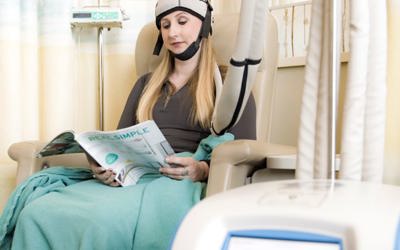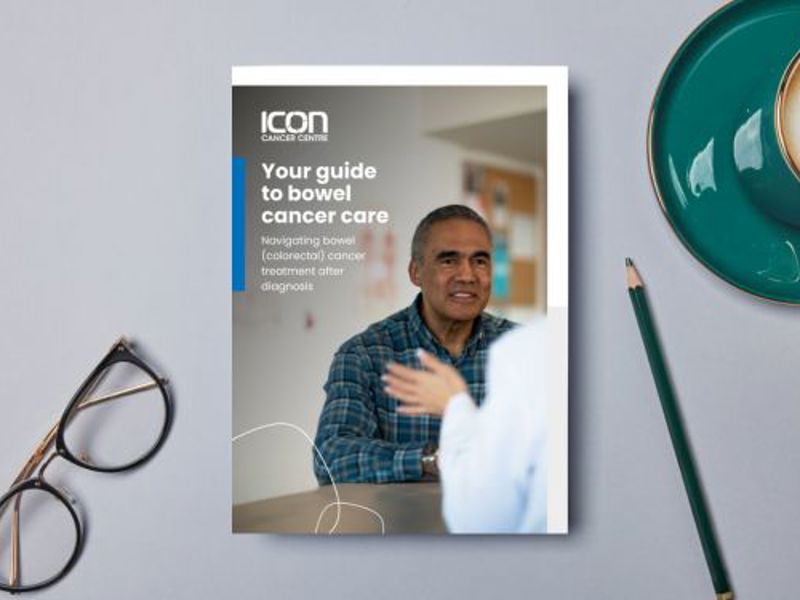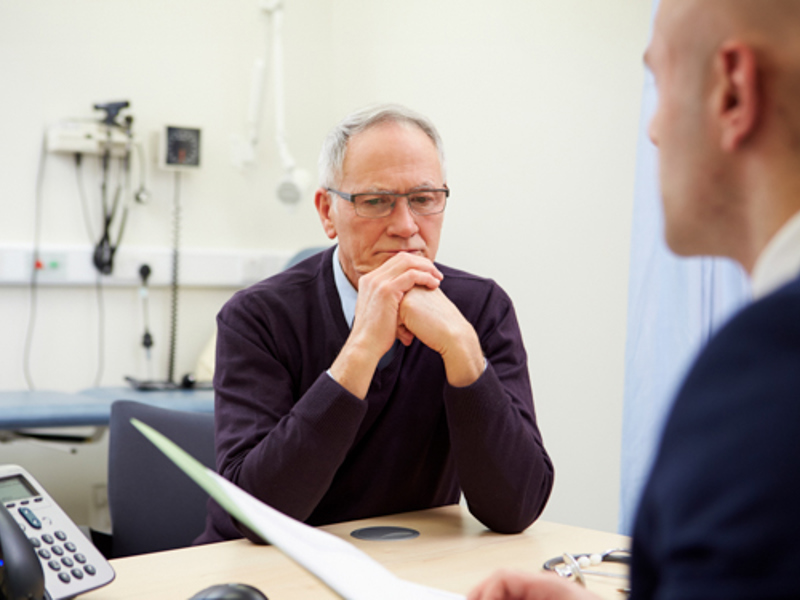
Everything you need to know about scalp cooling
Screening has shown to improve survival rates through the early detection of cancer. Finding cancer early, often means there are more treatment options available to you and increases your chances of successful treatment. In Australia, national screening programs are available for breast cancer, bowel cancer and cervical cancer. By understanding how screening works, its importance, and who should get screened, individuals can take proactive steps towards their health.
Bowel cancer, also known as colorectal cancer, is the fourth most commonly diagnosed cancer and the second deadliest cancer in Australia. Early detection can significantly improve your chance of early intervention with improved survival outcomes. If detected early, more than 90% of cases can be successfully treated.
Be informed, feel empowered. Our free guide will help you make decisions about your, or your loved ones, care.

Population screening for bowel cancer is available through the Australian Government’s National Bowel Cancer Screening Program (NBCSP), which targets Australians with increased risk of colon cancer. The Australian Government introduced the NBCSP to reduce the number of deaths from bowel cancer through early detection and intervention. The NBCSP provided test is called an immunochemical Faecal Occult Blood Test (iFOBT). The home testing kit is designed to detect traces of blood in your faeces (poo) not usually visible to the human eye.
The bowel cancer screening test is simple, quick and can be done at home. Participants need to collect two small samples from two separate bowel movements using the provided kit, which includes detailed instructions, collection tubes and a reply-paid envelope. It’s essential to send the samples for testing promptly, especially in hotter climates, to maintain accuracy. Results are usually provided within four weeks.
The NBSCP targets all Australians with an increased risk of bowel cancer aged 45 years to 74 years to participate in the 2 yearly screening program. Australians aged 45-49 can join the NBSCP by requesting a kit. People in this age group can request their first kit by completing the form available online at: www.ncsr.gov.au/boweltest or calling the NBCSP Helpline: 1800 627 701.
Australians aged 50 to 74 are automatically invited to take part in the screening program and will receive a free test kit delivered to their address every two years.
Population screening (NBCSP) does not replace your regular GP visits to review current symptom’s (listed below) lasting longer than two weeks. The GP should refer you immediately for a colonoscopy within 30 days as per current guidelines.

Symptoms related to bowel cancer include:
Blood in your faeces (poo)
Obvious change in bowel habits including constipation and diarrhoea, or incomplete opening of bowels
Weight loss you can’t explain
Extreme tiredness or iron deficiency anaemia
Lump or swelling, bloating of abdomen
NBSCP does not replace regular surveillance screening based on colonoscopy for individuals with higher risk factors including a history of colon polyps/cancers, high risk family genetics, formal diagnosis of Inflammatory Bowel Disease (IBD).
Your GP should be consulted for individual advice if population screening through the NBCSP is appropriate or an individualised surveillance pathway is required.
For more information, consult the Australian National Bowel Cancer Screening on the prevention, early detection and management of colorectal cancers.
The content on the Icon Cancer Centre website is for informational purposes only and should not be considered medical advice. It is not a substitute for consultation with a qualified medical practitioner. For personalised medical guidance, please consult with your GP or another qualified healthcare provider.
Discover our comprehensive collection of content designed to inform, support, and guide you through every aspect of cancer care. From the latest news and updates to personal patient experiences and educational resources, these materials provide valuable insights to help you better understand cancer, treatment options, and the journey ahead.